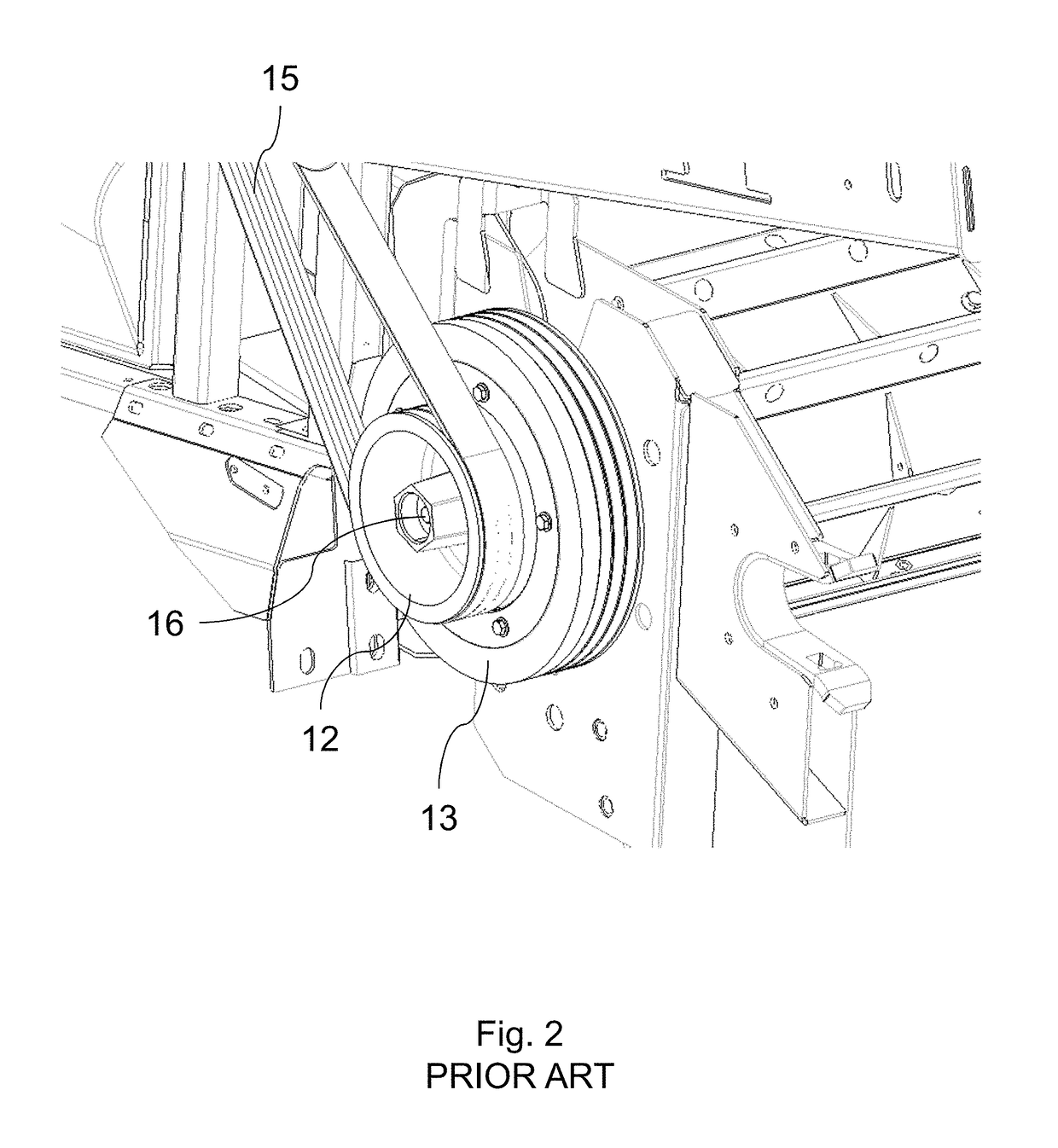Tension roller assembly for a belt drive
a technology of tension roller and belt drive, which is applied in the direction of agriculture, agriculture tools and machines, and machining, etc., can solve the problems of user injury, strong force on the user, and relatively little space for the belt to be removed, so as to reduce the risk of injury for the user, facilitate the operation, and reduce the risk of injury
- Summary
- Abstract
- Description
- Claims
- Application Information
AI Technical Summary
Benefits of technology
Problems solved by technology
Method used
Image
Examples
Embodiment Construction
[0075]Turning to FIGS. 1 and 2, a belt drive 10 according to the prior art is shown. The belt drive 10 is used in a combine harvester for driving the dynamic feed roll. The shown belt drive is currently manufactured by the present applicant. The belt drive comprises a first driven pulley 12 and a second driven pulley 13. The first driven pulley 12 is smaller than the second driven pulley 13. The small and large driven pulley are provided on the same driven axis 16. The belt drive further comprises a driving pulley 14.
[0076]Turning in particular to FIG. 2, the belt drive has two gears. In the first gear, the small driven pulley 12 is used and the large driven pulley 13 is in an inoperative position. In this gear, the belt drive has a high speed and a low torque. When the belt drive needs to be switched to the low gear ratio, the belt 15 is removed. The large driven pulley 13 is moved from the inoperative position shown in FIG. 2 to the operative position shown in FIG. 1. This can be ...
PUM
 Login to View More
Login to View More Abstract
Description
Claims
Application Information
 Login to View More
Login to View More - R&D
- Intellectual Property
- Life Sciences
- Materials
- Tech Scout
- Unparalleled Data Quality
- Higher Quality Content
- 60% Fewer Hallucinations
Browse by: Latest US Patents, China's latest patents, Technical Efficacy Thesaurus, Application Domain, Technology Topic, Popular Technical Reports.
© 2025 PatSnap. All rights reserved.Legal|Privacy policy|Modern Slavery Act Transparency Statement|Sitemap|About US| Contact US: help@patsnap.com



